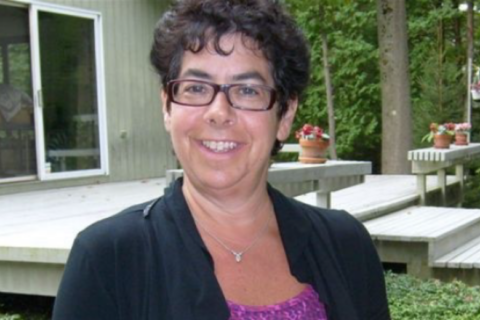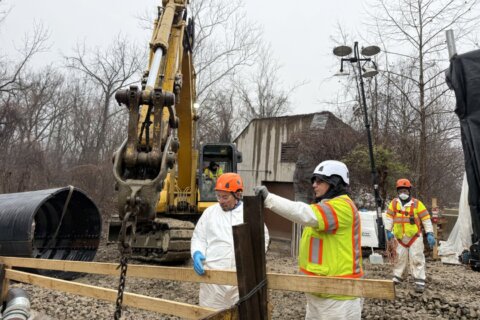A recent rash of racist graffiti, including the words “White Pride,” has been painted at five locations in Bethesda, Maryland, and the local prosecutor said he intends to try the cases as hate crimes.
In a statement to WTOP, Montgomery County police say they are “investigating graffiti in five locations along Old Georgetown Road, to include Walter Johnson High School, Georgetown Square Shopping Center, two churches, and a museum.”
In a letter to the Walter Johnson High School community, Principal Jennifer Baker said that the vandalism at the Bethesda school included references to white supremacy and other hate speech and said that these symbols are “harmful and unsettling for many” in the community.
“This is being investigated as a [bias] incident,” police said. “Investigators are currently reviewing surveillance video and attempting to locate witnesses.”
Montgomery County State’s Attorney John McCarthy told WTOP while “not everything that is hateful amounts to a crime,” this is also not a case where a person is able to freely voice their opinion while defacing property.
“This goes beyond speech, this has taken the form of vandalism,” McCarthy said. “And there is no protection, under the First Amendment, from vandalism.”
While police have yet to make an arrest, or complete an investigation, McCarthy said what has happened already is illegal.
“The specific incidents we are investigating in Montgomery County go well beyond the protections of the First Amendment. They are crimes, and they will be prosecuted as crimes, once the perpetrators are identified,” McCarthy said.
In Maryland, under MD Criminal Law 10-301, through 10-308, a person may not: commit a crime that is motivated either in whole or substantial part by another person or group’s race, color, national origin, religious belief, sexual orientation, gender, gender identity, homelessness or disability.
A bias-related incident may be motivated by the same reasons, but doesn’t rise to the level of a criminal offense.
“I think these are crimes, these are hate crimes that we’re talking about,” said McCarthy. “But they’d be charged as vandalisms as well — they’d be charged with both.”
In Maryland, certain crimes motivated by hate can result in enhanced penalties for the underlying crime. In other cases, separate hate-related charges can also be placed.
Hate crimes are important to prosecute, McCarthy said, because of the effect on citizens in protected classes.
“When you commit a hate crime, there may be just one person directly involved as the victim. But when it’s a hate crime there’s an entire class of citizens that live in this community — they feel victims, too,” said McCarthy. “That’s why it’s so dangerous, and why we need to be so vigilant and aggressive in prosecuting these kids of crimes.”








